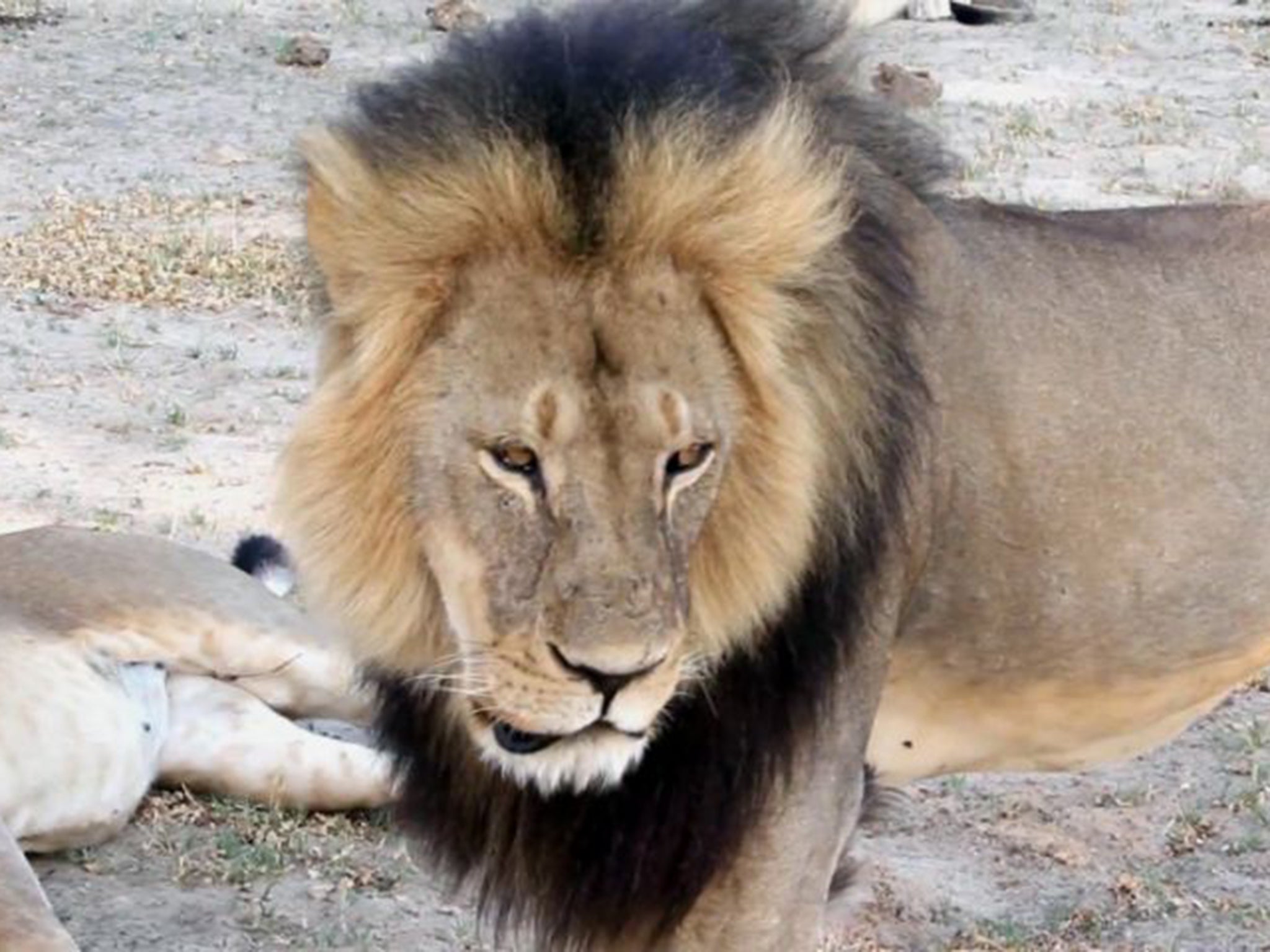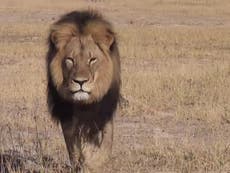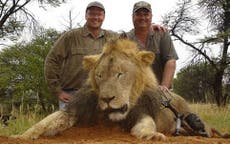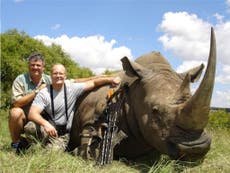Cecil the lion's death proves it's the sexy beasts that get all the love
Lions make us go weak at the knees, as do dolphins and pandas, so why aren’t we more worked up about their habitats?

Poor old Cecil. Such a nice lion. Shot to death with an arrow fired by an American dentist. Not the end you would wish for him. Still, the global outrage that followed has been spectacular. Cecil’s death has played on the world’s heart strings like a manic harpist: the St Sebastian de nos jours.
Why? Because he’s a lion, of course. Cecil the leopard wouldn’t have raised the same level of concern, even if leopards are arguably more beautiful. The the death by arrows of Cecil the kudu or Cecil the gerenuk wouldn’t have upset people to anything like the same extent.
There’s something about lions that goes extra-deep. England cricketers and footballers wear three of them on their chests; a lion ramps on the Scottish scutcheon; the whole world knows they’re king of the beasts. In Eden, a lion lies down with the lamb; in Narnia, a lion heals all harms; in Oz, the cowardly lion finds his courage.
Walter Palmer, tooth-puller and lion-murderer (paying £32,000 for the privilege), killed more than an alpha predator. He took a pot-shot our myths, our dreams, our stories. He committed a crime against the morality of the nursery. He trampled on all the sentimental feelings we have about wildlife.
Let’s switch to that fine British organisation Butterfly Conservation. We’re haemorrhaging butterflies, so the organisation is encouraging holidaying families to look for common blues by the seaside and send in their records – because common blue is now an oxymoron.
The organisation gets good support because we like butterflies. Butterflies are nature at its kindest: nature as people-pleaser. You don’t have to work too hard to persuade people that conserving butterflies is a good idea.
My right hand hurts. I got stung: there’s a wasp’s nest in the garden. There is not much public call for a Wasp Conservation Society: even though wasps play as significant a role in the ecosystems as any butterfly.
It’s one of the eternal problems of conservation: how to catch people’s attention. And money. You can be serious and talk about the loss of life in our seas and the problems of overfishing and disturbance. You can explain how we badly need more Marine Conservation Zones to protect rare corals and curious invertebrates. It’s a point most of us can grasp intellectually.
Or you can ask people to adopt a dolphin. You can try to have your cake and eat it by explaining that Flipper is not only a good thing by himself, he is also the figurehead for all oceanic life: and that if we are to protect Flipper we must do something about pollution, overfishing etc.
Dolphin, panda, gorilla, lion, rhino, jaguar, blue whale, elephant, tiger, chimpanzee: a top 10 of sexy beasts. Fact: you can’t save an elephant without saving the land that elephants live on. Problem: a map isn’t as sexy as an elephant.
I’ve been closely involved with the Wildlife Trust of India and, in this country, the World Land Trust (WLT) in establishing elephant corridors: small strategic plots of land that join up two vaster chunks of forest, allowing elephants to avoid human settlements, socialise with each other and avoid inbreeding depression.
Great project. But a corridor isn’t as cheque-book-wavingly gorgeous as a baby with outsized ears and a trunk.
If we want wild orang-utans we must save important areas of rainforest in Borneo. Again, I have been involved with corridor projects with WLT and the local organisation Hutan and we’ve raised some very decent money for this – even though it’s 10 times easier to raise money for an orang-utan “orphanage” (for rescued pets) with a picture of a baby creature in a nappy.
This issue is one of the great distractions: a false dichotomy: conservation against welfare. Welfare is a fine thing: but conservation is about the long-term future of an ecosystem called planet Earth. It shouldn’t be a contest, but it is – because of our Cecil-the-lion sentimentality about the wild world.
So what should a conservation organisation do? Ride the wave of sentimentality for all its worth? Or treat potential donors like grown-ups and deal with real problems in a foursquare and uncompromising way?
So many people love the nursery view of the wild world and see a place crowded with goodies and baddies: blackbirds good, magpies bad. It’s hard to get people excited about saving snakes: they play the bad guy in Genesis, The Jungle Book and Harry Potter.
But lions have mostly been good guys. We had a king called Lionheart; we put them in Trafalgar Square. I’ve spent plenty of time with the safari business and a lion is top of every first-timer’s shopping-list. I remember my own first lion as if it were yesterday: and I can tell lion stories to make the campfire grow chill.
We humans love stories and lions make some of the best tales: which is why lions have a deep meaning for us. But the thing about conservation is that it’s not just about us. It’s not about sexy beasts and furry babies and colourful birds: it’s about saving the planet for our great-grandchildren, and doing so in the knowledge that biodiversity and bioabundance are the things that keep it going.
Conservation is not sentimental. It’s not cute. It’s not charming. It’s not naive. Conservation is about not trashing the place we live on. Conservation is hard-nosed and practical: everything else is woolly and fuzzy and daft. The dream that the solution to all our problems lies in ever greater industrial development is the most sentimental notion of them all.




Join our commenting forum
Join thought-provoking conversations, follow other Independent readers and see their replies